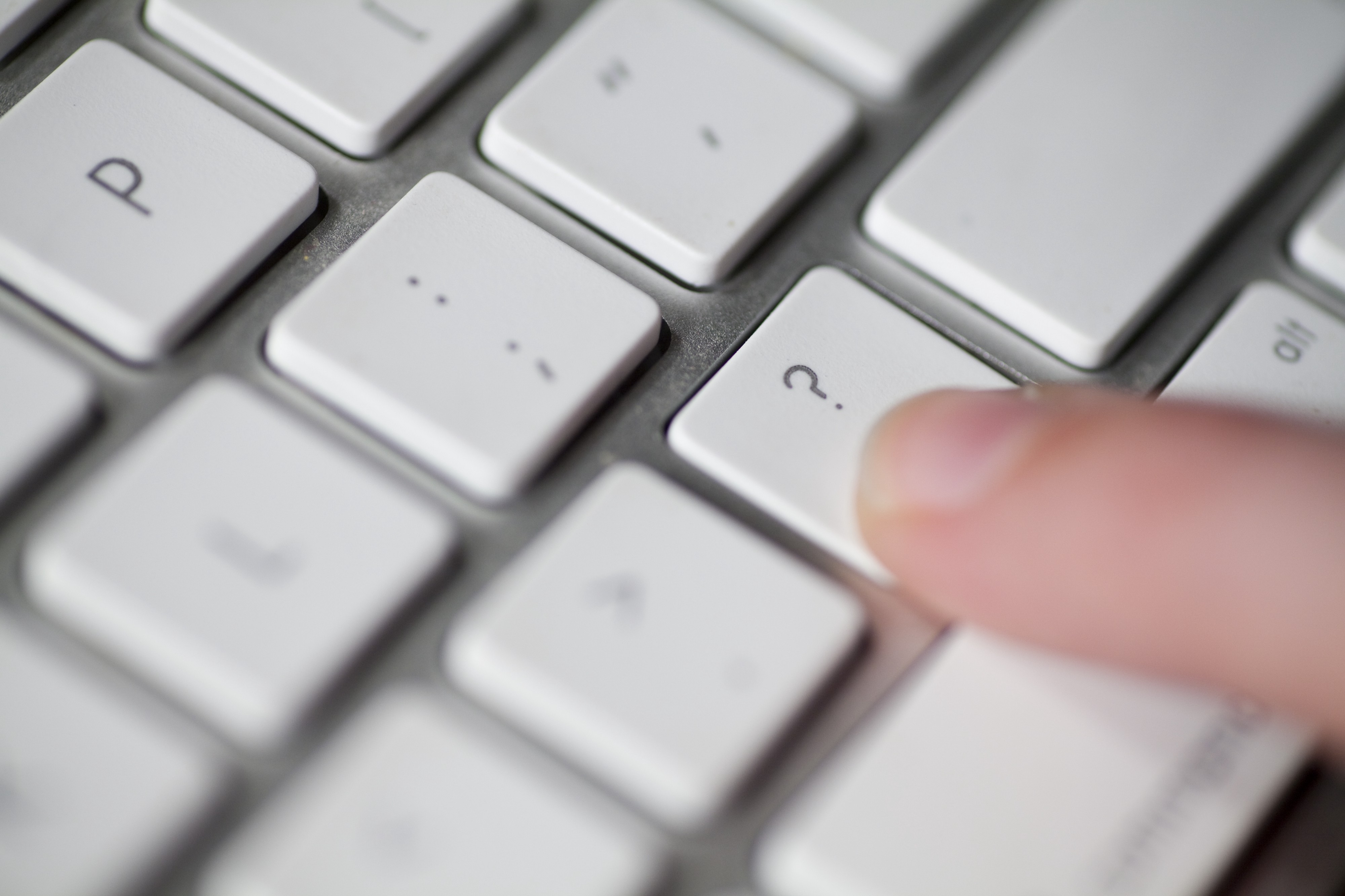The question-without-a-question-mark conveys its own meaning

Is a question without a question mark still a question?
I ask because more and more of the questions I see ? and ask ? online have started to drop the very thing that defined them as such.
For example:
What?s going on with this weather
Is that a thing now
What does he want
This is not an oversight. The question-without-a-question-mark conveys its own meaning. It can be droll or sarcastic. It?s the roll of the eyes and the shrug of a club comic. It can be rhetorical, a statement that requires no answer.
That, perhaps, is the problem we?re discovering with the question mark. Sometimes when we ask questions, we?re not actually looking for answers. It?s an invitation, when really we don?t want to dance.
At a time rich in internet pedantry and unsolicited mansplaining, a question can be a trap. Imagine if, when you asked, ?What?s going on with this weather?? you received a 2,000-word reply linking to 16 scientific reports on shifting international climate trends. The internet is killing the rhetorical question, amirite?
But I?d argue there?s something else going on, too. While our schoolteachers or our parents may mistake our rejection of the established rules of punctuation for the younger generations? ruthless quest for efficiency or our slow slide into apathy, there is evidence to suggest that it is simply because we are smart.
In her ?Lectures in America? essays, the very smart novelist Gertrude Stein did not hold back her disgust at the question mark, calling it ?positively revolting.? She wrote: ?It is evident that if you ask a question you ask a question but anybody who can read at all knows when a question is a question as it is written in writing.? (It?s pretty clear she also hated commas.)
More than just a part of casual, digital written dialect, the dropping of the question mark is a sign of mental nimbleness. It?s a manifestation of ?situational code-switching,? a concept first introduced in the 1970s by the anthropologist Edward T. Hall. Code-switching is a marker of our ability to understand and adapt to all the different social moments we find ourselves in throughout our day.
When a pilot talks to a control tower in one style, then switches to a different style to chat to their co-pilot, and another still when making an announcement to passengers, that?s code-switching. It?s the way, as a teenager, I would say ?Oh, good morning!? in my angelic high voice if my friend?s parents picked up the home phone, instead of greeting my friend with a deep and lasting ?Wazzuuuuup?!? (It was the ?90s). Put simply, it?s the way you intrinsically understand when you should make an effort with your sentences, versus when you feel you have permission to ape the rhythms of normal conversation, whatever that looks like to you.
And code-switching is the thing that validates your casual ditching of the question mark. It has been studied as an indication of linguistic adeptness in bilingual people and speakers of various dialects. Rep. Alexandria Ocasio-Cortez had to school her critics on code-switching in a Twitter thread earlier this year. Digital language, peppered as it is with emojis and dropped punctuation, isn?t ?wrong,? exactly. It just has its own dialects. We?re all code-switching, to some extent, by virtue of living part of our lives online.
Consider when you?d never consider dropping the question mark ? in an email to your boss, maybe, or an article like this one. On a job application to be a New York Times copy editor, you?d never consider writing:
What makes me good for this job
My attention to detail
But the question mark is arguably less vital and perhaps even a hindrance in our day-to-day digital exchanges ? the texts or Slack messages we trade with colleagues, friends, and loved ones. With those people, a throwaway ?what time are you leaving? asks only for a casual reply as part of a bigger conversation.
As Stein noted, we understand that this is a question, because the question is right there, and it is very unlikely you will receive a reply saying ?I?m so sorry, could you be a little clearer, I don?t understand if that was a question or not because it just seemed to end.?
It is not because we?re lazy that we drop the question mark. It is not that we have no respect for grammatical rules. It is not that we are arrogantly spitting in the face of a piece of punctuation that has served us selflessly and without complaint since at least third-century Egypt (according to the delightful book Shady Characters: The Secret Life of Punctuation, Symbols, and Other Typographical Marks).
No. It is because language evolves. In our ever-more-confusing world, it will keep evolving ? no question.